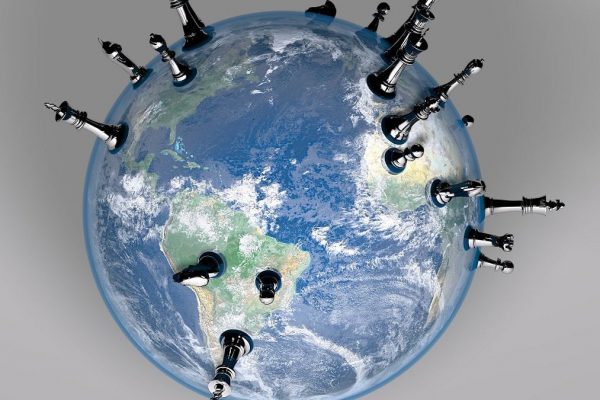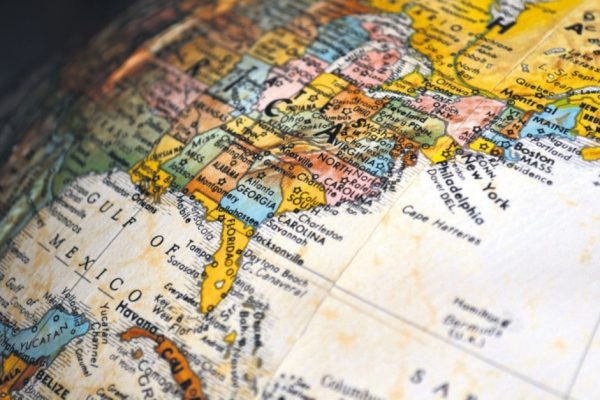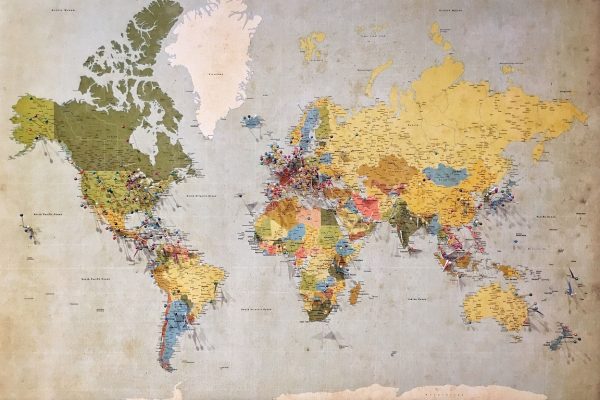This Article corresponds to the “Global Business Strategies” course as part of the Rochat MBA program and was submitted by the student Safrel Bajal.
COVID-19 is the latest in a long series of pandemics that have shaped the course of history and hold lessons for today. The epidemic likewise prompted an extended job of the state in medical care, which Coronavirus has additionally set off. Pandemics throughout history show that the poorest suffer the most.
With the Covid-2019 (Coronavirus) pandemic disturbing all aspects of regular daily existence, we have started to consider the drawn out effects the emergency could have on worldwide state relations. While it is conceivable that the world will return to how it was in December 2019, it is additionally conceivable that more considerable international movements will disturb the state of affairs.
Therefore, it is imperative to check out our suspicions about the world now and how they may change so that organizations and financial backers can be more ready for the more drawn out term disturbance.
1. IMPACT OF COVID-19 in the world.
- US political race: Our accomplice Oxford Financial aspects appraises that Coronavirus will cut previously easing back US monetary development in 2020 to around 1.3%. A pandemic setting off lockdowns of significant populace places could drive the US into downturn. The log jam will sabotage President Donald Trump’s re-appointment pitch; a downturn in 2020 – joined by far and wide social interruption – would likely lose him the White House.
- US-China exchange war: Instead of empowering participation, Coronavirus has fuelled shared analysis between the US and China. Numerous in Washington have scrutinized Beijing’s treatment of the episode while Chinese media and authorities have blamed the US for politicizing the emergency and offering little help. The sharp lull in China’s economy additionally makes it improbable that China this year will meet its responsibility, under the economic deal it endorsed with the US in January, to significantly expand imports from the US.
- China in the world: COVID-19 has consumed China’s political establishment for two months. Attempting to get the economy back on track while preventing any resurgence of the outbreak could dominate leadership thinking until well into the second half of the year. The need to direct political and financial capital towards domestic recovery may temporarily sap momentum from global ambitions such as the Belt and Road Initiative (BRI), which has already suffered from a backlash in many countries.
- EU Cohesion: = Coronavirus cut European development in 2020 (by around 0.2%), possibly scuppering a beginning monetary recovery (especially in German assembling) following quite a while of stagnation. Italy – right now bearing the financial and clinical brunt of the territorial scourge – is probably going to demand monetary help from the alliance.
- Iranian Isolation: Coronavirus is probably going to additionally separate Iran inside the Center East, regardless of whether it is probably not going to genuinely compromise system security. Iran’s inability to successfully contain Coronavirus provoked neighbors to close their lines, suspend travel connections and view Shia Muslim populaces with doubt. This will additionally harm Iran’s economy, pulling scant assets from its help of provincial intermediaries.
- Coronavirus is a significant trial of the new Traditionalist government, making careful effort to show that leaving the EU has not left the UK – with its eminent general wellbeing framework, chief clinical scholastic foundation, and driving drug area – more secluded.
- Coronavirus has failed worldwide oil markets, to a great extent a result of falling interest in China. The disappointment of OPEC and Russia to concur on continuation of creation cuts has intensified descending tension on oil costs. On Walk 9 the oil value fell by 20% to $31 setting off disturbance on worldwide business sectors. The Russia/Saudi Arabia value war is probably going to be brief and OPEC+ will presumably agree in the coming months. Notwithstanding, the oil cost is probably going to settle somewhere in the range of $40 and $50 until the worldwide economy starts to recuperation from Coronavirus stun. Low oil costs will present monetary difficulties for various oil delivering economies like Iran, Kazakhstan, Azerbaijan and even Saudi Arabia which require essentially higher oil costs to adjust their present budgetary uses. Russia has adequate stores to withstand a lower cost, yet it is probably going to confront huge cash debasement, increment in capital flight and declining genuine livelihoods.
- Global governance remains fraught as a result of trade wars, intractable conflicts and inaction on climate change. In any case, an organized reaction to Coronavirus – in the event that it holds – could renew trust in global organizations (like the WHO) just as temper pressures between international adversaries (like applauses for China’s forceful regulation endeavors).
2. Sample of Business Type affected by Covid
One year after the Covid pandemic previously disturbed worldwide inventory chains by shutting Chinese production lines, crisp delivery migraines are deferring U.S. ranch trades, creasing homegrown assembling and undermining more exorbitant costs for American shoppers. The expense of delivery a compartment of merchandise has ascended by 80% since early November and has almost significantly increased over the previous year, as per the Freightos Baltic File. The expansion reflects sensational movements in utilization during the pandemic, as buyers divert cash they once spent at eateries or cinemas to the acquisition of record measures of imported dress, PCs, furniture and different products. That unexpected and remarkable spending shift has overturned long-standing exchange designs, making bottlenecks from the entryways of Chinese manufacturing plants the doorsteps of U.S. homes.
Shoppers as of now have seen a contact with spot deficiencies of family apparatuses and some apparel things lately. The cost of products showing up from China posted its biggest one-month acquire in over three years a month ago, ascending by 0.3 percent. Delivery transporters at first stood by vessels to coordinate decreased interest. Yet, as shoppers stuck at home started purchasing work areas, PCs, lawn fire pits and theater setups — and Chinese industrial facilities continued typical tasks — Asian exporters clamored for space on board load ships. The abrupt changes played destruction with supply anchors that were intended to work on “in the nick of time” standards, carrying products to ports when vessels were holding on to whisk them to inaccessible clients. Numerous organizations, disappointed by taking off transportation costs, put the issues on the sea transporters, saying they intentionally sat vessels a year ago to raise costs. Be that as it may, while the quantity of “clear sailings,” or dropped courses, rose a year ago, transporters have expanded their complete limit Less ships showing up in U.S. ports implied less steel trailers accessible for the return excursion to Asia. With retail chains and different retailers shut by closures, merchandise accumulated at port terminals and stateside stockrooms. That made it harder for 18-wheelers to get into such offices to get new loads and drop off void holders, further obstructing coordination’s channels.

References:
https://ihsmarkit.com/research-analysis/geopolitics-in-a-postpandemic-world–scenarios-for-2025.html
https://ihsmarkit.com/research-analysis/geopolitics-in-a-postpandemic-world–scenarios-for-2025.html
https://www.weforum.org/agenda/2021/01/covid-19-geopolitics-lessons-pandemics-history/






